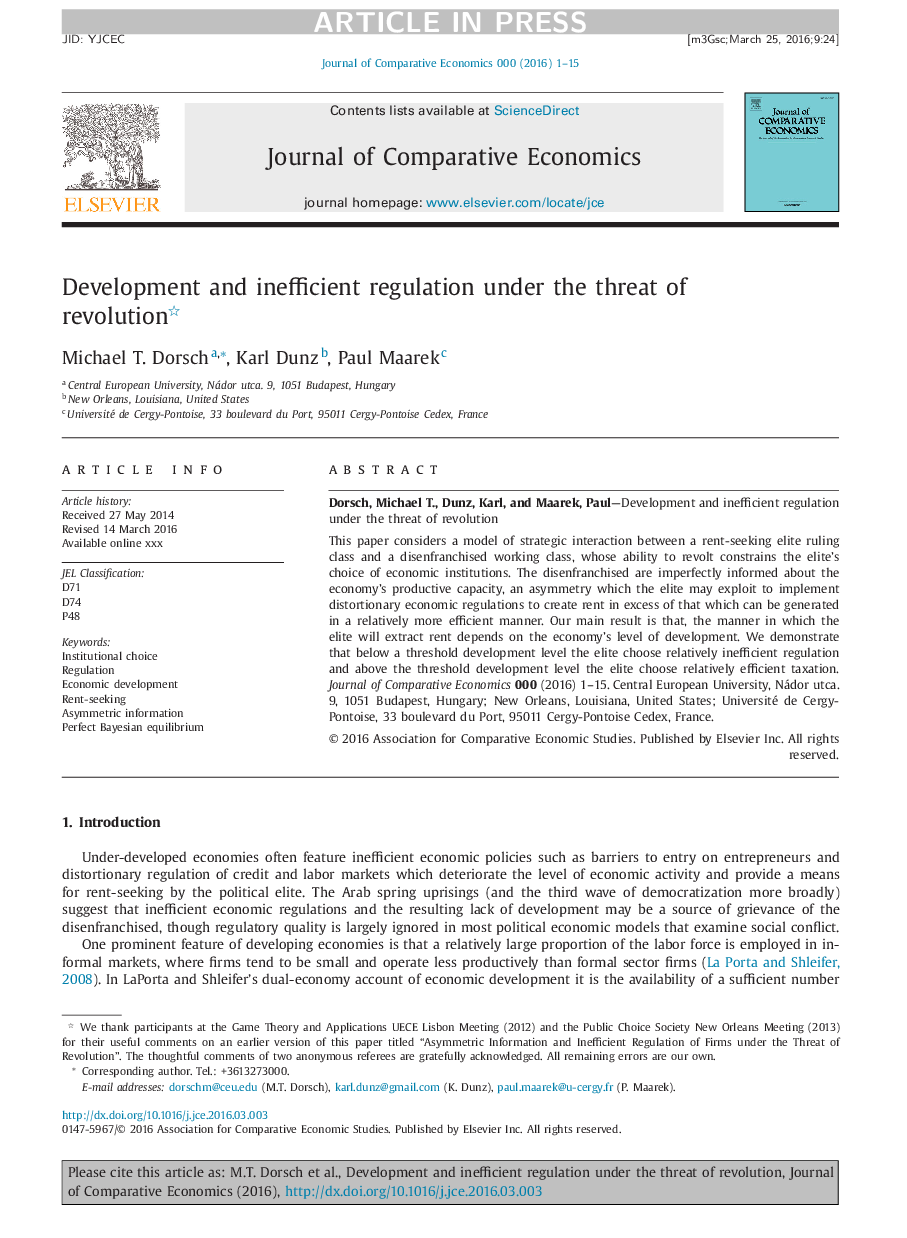| Article ID | Journal | Published Year | Pages | File Type |
|---|---|---|---|---|
| 5092153 | Journal of Comparative Economics | 2016 | 15 Pages |
Abstract
This paper considers a model of strategic interaction between a rent-seeking elite ruling class and a disenfranchised working class, whose ability to revolt constrains the elite's choice of economic institutions. The disenfranchised are imperfectly informed about the economy's productive capacity, an asymmetry which the elite may exploit to implement distortionary economic regulations to create rent in excess of that which can be generated in a relatively more efficient manner. Our main result is that, the manner in which the elite will extract rent depends on the economy's level of development. We demonstrate that below a threshold development level the elite choose relatively inefficient regulation and above the threshold development level the elite choose relatively efficient taxation.
Keywords
Related Topics
Social Sciences and Humanities
Economics, Econometrics and Finance
Economics and Econometrics
Authors
Michael T. Dorsch, Karl Dunz, Paul Maarek,
